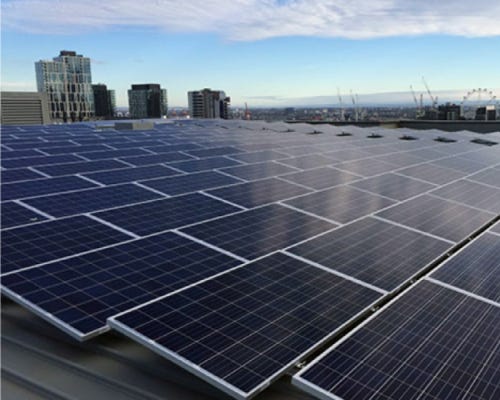Solar Heights: Rooftop Efficiency

Solar Heights: Rooftop Efficiency
Harnessing the power of the sun, rooftop solar efficiency has become a key player in sustainable energy solutions. From reducing carbon footprints to cutting electricity costs, this innovative technology offers a bright future for both homeowners and businesses alike.
Unleashing the Power of the Sun: Introduction to Rooftop Solar Efficiency
Rooftop solar efficiency involves the installation of solar panels on building rooftops to convert sunlight into electricity. This eco-friendly approach taps into the abundant and renewable energy source of the sun, providing an alternative to traditional grid-based electricity. The shift towards solar energy aligns with global efforts to reduce reliance on fossil fuels and mitigate the impacts of climate change.
Economic and Environmental Benefits: A Win-Win Scenario
One of the primary advantages of rooftop solar efficiency lies in its dual benefit of economic savings and environmental conservation. Homeowners and businesses investing in solar panels can significantly reduce their electricity bills over time, enjoying long-term financial savings. Simultaneously, the decreased reliance on conventional power sources contributes to a reduction in greenhouse gas emissions, fostering a greener and more sustainable future.
Efficiency in Every Ray: Maximizing Energy Harvesting
Advancements in solar technology have led to increased efficiency in energy harvesting. Modern solar panels can capture sunlight more effectively, converting a higher percentage of sunlight into electricity. This enhanced efficiency translates to greater energy production, allowing users to harness more power from their rooftop solar installations.
Off-Grid Independence: Empowering Homes and Businesses
Rooftop solar efficiency provides an opportunity for homes and businesses to achieve a degree of energy independence. By generating their electricity, users can reduce dependence on traditional power grids. This not only offers resilience during power outages but also contributes to the overall stability and reliability of the energy infrastructure.
Financial Incentives and Tax Benefits: Making Solar More Accessible
Governments and local authorities often offer financial incentives and tax benefits to encourage the adoption of solar energy. These incentives can significantly offset the initial costs of installing rooftop solar systems, making the technology more accessible to a broader range of homeowners and businesses. It’s a win-win situation, promoting sustainable practices while providing economic advantages.
Innovations in Solar Storage: Overcoming Intermittency
One challenge with solar energy is its intermittency, as sunlight availability varies throughout the day. However, innovations in solar storage solutions, such as battery technologies, address this issue. Solar batteries allow excess energy generated during sunny periods to be stored for later use, ensuring a continuous and reliable power supply even when the sun is not shining.
Environmental Impact: Reducing Carbon Footprints
Rooftop solar efficiency plays a crucial role in mitigating the environmental impact of traditional energy sources. By shifting towards solar power, individuals and businesses actively contribute to the reduction of carbon footprints. This transition is a vital step in combatting climate change and creating a more sustainable and eco-friendly energy landscape.
Educating for a Sustainable Future: Promoting Solar Awareness
Promoting awareness and educating communities about the benefits of rooftop solar efficiency is essential for widespread adoption. Outreach programs, community initiatives, and educational campaigns can empower individuals and businesses to make informed decisions about incorporating solar energy into their daily lives.
The Future of Energy: Rooftop Solar Efficiency as a Sustainable Choice
As technology continues to evolve, rooftop solar efficiency is poised to play an increasingly prominent role in the future of energy. The ongoing development of solar technologies, coupled with growing environmental consciousness, positions rooftop solar as a key player in the global transition towards sustainable and renewable energy sources.
To explore the possibilities of Rooftop Solar Efficiency, visit Rooftop Solar Efficiency. Discover how harnessing the power of the sun can revolutionize the way we generate and consume energy, leading us towards a more sustainable and eco-friendly future.

